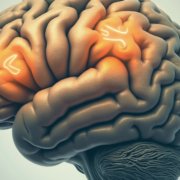Ketamine Therapy Germany: Top 5 Life-Changing Benefits
Ketamine therapy Germany is gaining momentum as a sought-after treatment for various mental health conditions. Known for its fast-acting relief, ketamine offers hope to those enduring challenges like depression, PTSD, and anxiety. If you’re exploring options in Germany, here are key points to consider:
- Innovative Treatment: Ketamine is used in combination with therapies like hypnosis and neuromodulation for improved results.
- Rapid Relief: Unlike traditional therapies, ketamine provides quick symptom alleviation.
- Versatile Applications: Effective for treatment-resistant depression, PTSD, and more.
Germany is home to several renowned ketamine therapy centers that blend modern medicine with psychotherapy. These facilities are dedicated to improving the quality of life for those who have found little success with other treatments. As Dr. Mario Scheib suggests, “A meaningful therapy must be oriented to the needs of the patient, not the patient to the therapy.” This patient-focused approach is central to ketamine therapy in Germany.
For further insights into ketamine therapy, explore how this treatment works and the benefits it holds in our comprehensive guide.

Understanding Ketamine Therapy
Ketamine therapy is a groundbreaking approach in the field of mental health treatment. In Germany, this therapy is gaining recognition for its unique ability to provide rapid relief from conditions like depression, PTSD, and anxiety.
What is Ketamine?
Ketamine is a medication traditionally used as an anesthetic. However, in recent years, it has shown promise in treating mental health disorders. As a psychedelic-augmented therapy, ketamine works by affecting neurotransmitters in the brain, particularly those related to mood and perception.
Psychedelic-Augmented Therapies
Psychedelic-augmented therapies involve using substances like ketamine to improve the effects of psychotherapy. These therapies aim to open up entrenched thought patterns and facilitate deep emotional healing. Clinics in Germany are at the forefront, offering ketamine in a controlled, therapeutic setting to help patients achieve profound insights and lasting change.
How Does Psychotherapy Fit In?
Psychotherapy is an integral part of ketamine therapy. It provides the framework within which patients can process their experiences and insights gained during ketamine sessions. This combination helps in breaking down mental barriers and fostering new perspectives, ultimately promoting mental health improvement.

In summary, ketamine therapy in Germany combines the power of modern medicine with therapeutic practices to offer hope for those struggling with mental health challenges. By integrating ketamine with psychotherapy, patients can experience both immediate relief and long-term improvements in their mental well-being.
Benefits of Ketamine Therapy in Germany
Ketamine therapy offers a guide of hope for individuals in Germany struggling with mental health challenges. Its benefits are particularly noteworthy for conditions such as depression, PTSD, OCD, and chronic pain.
Depression
For those battling depression, ketamine therapy is a game-changer. Unlike traditional antidepressants, which can take weeks to show effects, ketamine works almost instantly. Patients often report improved mood and reduced suicidal thoughts on the same day of treatment. This rapid response is crucial for individuals who have not found relief through other medications.
PTSD
Post-traumatic stress disorder (PTSD) can be debilitating, affecting daily life and mental stability. Traditional treatments often fall short, leaving many without relief. Ketamine therapy, however, has shown significant promise. Clinical trials reveal that ketamine can quickly alleviate PTSD symptoms, offering a new path for those who have struggled with conventional therapies.
OCD
Obsessive-compulsive disorder (OCD) can be relentless, with intrusive thoughts and compulsions disrupting lives. Ketamine therapy has emerged as a potential solution, with studies indicating a notable reduction in symptoms after a single infusion. This period of relief provides a valuable window for intensive psychotherapy, potentially reducing the need for ongoing pharmacological treatment.
Chronic Pain
Chronic pain often intertwines with depression, creating a vicious cycle. Ketamine therapy addresses both, offering relief from pain while simultaneously lifting depressive symptoms. This dual-action makes it particularly effective for individuals whose depression is tied to physical discomfort.

In Germany, the integration of ketamine therapy into mental health treatment plans is providing individuals with new opportunities for recovery. By targeting conditions that are resistant to traditional methods, ketamine therapy is paving the way for innovative mental health solutions.
How Ketamine Therapy Works
To understand how ketamine therapy in Germany can be so effective, we need to dig into its fascinating impact on the brain. The key players here are NMDA receptors, glutamate, and neuroplasticity.
NMDA Receptors
Ketamine’s journey begins with NMDA receptors, which are crucial components of the brain’s glutamate system. These receptors help regulate mood and cognition. In individuals with mental health issues like anxiety or depression, these receptors can become overactive, contributing to their symptoms. Ketamine works by blocking these NMDA receptors. This blockade helps reduce the overactivity, offering relief from symptoms.
Glutamate
When ketamine blocks NMDA receptors, it leads to an increase in glutamate levels. Glutamate is a major neurotransmitter that plays a pivotal role in communication between neurons. The surge in glutamate activates AMPA receptors, another type of receptor that strengthens synaptic connections in the brain. This process is essential for improving mood and cognition.
Neuroplasticity
One of the most exciting aspects of ketamine therapy is its ability to promote neuroplasticity. This term refers to the brain’s ability to reorganize itself by forming new neural connections. By enhancing neuroplasticity, ketamine helps the brain “reset” its pathways. This reset is particularly beneficial for those with treatment-resistant conditions, as it disrupts the old, harmful patterns that contribute to anxiety or depression. Studies have shown that this process can lead to rapid improvements in symptoms, often within hours of treatment.
In Germany, ketamine therapy’s unique approach to modulating brain activity offers a new avenue for those who have not responded to traditional treatments. By focusing on the brain’s glutamate system and encouraging neuroplasticity, ketamine therapy provides a powerful, fast-acting alternative for mental health care.
In the next section, we’ll explore the various ketamine therapy options available in Germany, including notable treatment centers like OVID Clinic Berlin.
Frequently Asked Questions about Ketamine Therapy in Germany
What is the cost of ketamine therapy in Germany?
The cost of ketamine therapy in Germany can vary significantly depending on the clinic and the specific treatment plan. On average, a single session might range from €200 to €500. These costs can add up, especially if multiple sessions are required for effective treatment.
Insurance coverage for ketamine therapy is not guaranteed. Some private insurance plans may cover part of the cost, but many patients might need to self-pay. It’s advisable to check with your insurance provider to see if they offer any reimbursement for this type of treatment.
How long does ketamine therapy take?
The duration of ketamine therapy can differ based on individual needs and the condition being treated. Typically, therapy can be divided into short-term and long-term treatments.
- Short-term therapy: This usually involves a series of sessions over a few weeks, designed for those seeking quick relief from symptoms such as depression or anxiety.
- Long-term therapy: For chronic conditions or ongoing support, a longer treatment plan might be necessary. This could involve regular sessions over several months.
Each therapy plan is customized, allowing flexibility in scheduling to best fit the patient’s progress and response to treatment.
Are there any side effects of ketamine therapy?
Like any medical treatment, ketamine therapy comes with potential side effects. Most common are mild and temporary, including drowsiness, dizziness, and a sense of dissociation, where patients may feel detached from their surroundings. These effects typically subside within a few hours after treatment.
Safety is a top priority in ketamine therapy. Clinics ensure patient safety by monitoring individuals closely during and after sessions. While rare, some patients may experience more intense dissociative effects, but these are generally short-lived and managed by healthcare professionals.
In conclusion, while ketamine therapy presents a promising option for mental health treatment, it’s crucial to discuss potential side effects and treatment plans with a qualified provider to ensure a safe and effective experience.
Conclusion
In summary, ketamine therapy in Germany offers a promising avenue for those seeking mental health improvement. With its potential to address conditions like depression, PTSD, OCD, and chronic pain, ketamine therapy is gaining recognition for its effectiveness.
For those unable to access in-person therapy or seeking alternative options, our company, Buy Ketamine Crystals Online, provides a unique solution. We offer a range of ketamine products, including crystals, powder, pills, and vials, with discreet delivery. This allows individuals to explore ketamine’s benefits from the comfort of their home, without the need for a prescription.
It’s important to carefully consider therapy options and consult with healthcare professionals to determine the best course of action. Whether through clinic-based treatments or purchasing ketamine online, the goal is to improve mental well-being and enhance quality of life.
As awareness and accessibility increase, ketamine therapy continues to emerge as a valuable tool in the fight against mental health challenges.











